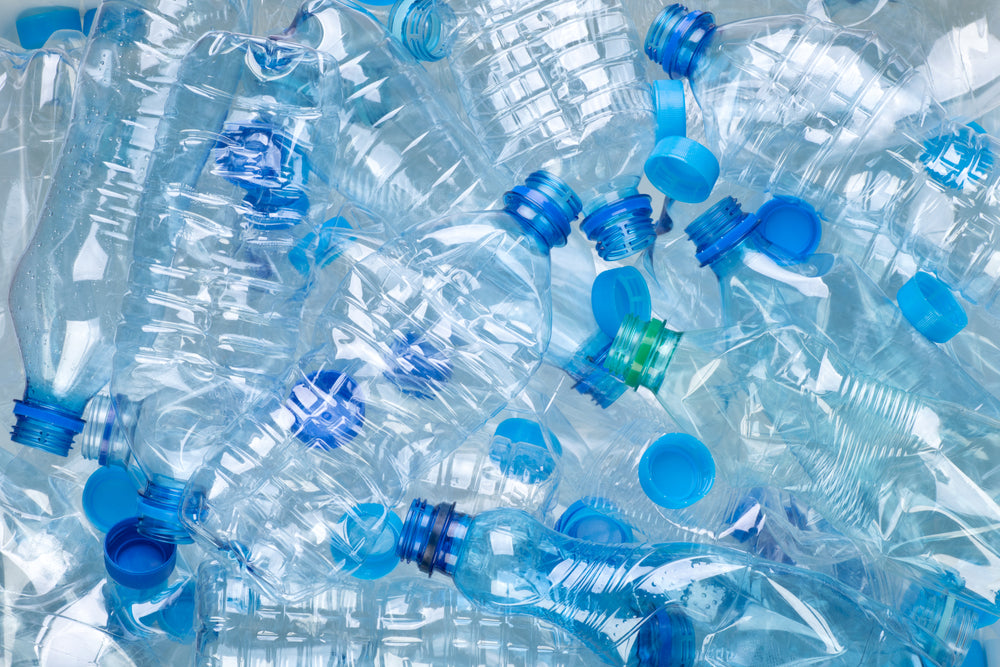The average family will spend over a thousand dollars on plastic water bottles annually. While plastic water bottles can be convenient, they come at a cost, not just to the consumer’s pocket but also to the environment. We will explore the multifaceted impact of plastic water bottle consumption, including its financial implications for the average household, environmental repercussions, and the health concerns associated with their use. Furthermore, we tackle the unnecessary complexity and environmental strain of bottled water, eliminating its presence from our customers' daily lives. The problem extends beyond mere inconvenience; it encompasses a tangled supply chain fraught with negative consequences.
In today's fast-paced world, the convenience of grabbing a plastic water bottle on the go is undeniable. However, this convenience comes with a hidden cost that accumulates significantly over time, posing a substantial financial burden for many families. On average, a single plastic water bottle costs anywhere from $1 to $3, depending on the brand and purchase location. While this might seem like a small outlay, the expense adds up quickly. Assuming an average family of four consumes two bottles per person per day, the daily cost ranges from $8 to $24. Over a year, this amounts to an astonishing $2,920 to $8,760 spent just on bottled water. When you compare this to the nearly negligible cost of tap water or the one-time investment in a water filtration system, the financial implications become starkly apparent.
Environmentally Immoral
Beyond the direct financial cost, there's an indirect expense related to the environmental impact of plastic water bottles. The production, transportation, and disposal of these bottles consume vast amounts of resources and energy, contributing to pollution and climate change. While this "cost" may not be immediately reflected in household finances, it contributes to a larger environmental debt that future generations will have to pay, potentially through higher taxes, costs of living, and the loss of natural resources.
Health & Microplastics
There's a growing concern that transcends the visible impact of plastic waste: microplastics. These tiny plastic particles, less than 1 μm in size (too small for the naked eye), are shedding from the very bottles designed to carry our water; infiltrating our bodies and the environment with potential consequences we are only beginning to understand. Recent studies have found microplastics present in the majority of bottled water brands, raising alarms about their prevalence and the ease with which they enter our systems. Unlike larger pieces of plastic waste, microplastics can evade filtration systems and accumulate in the natural environment, making their way into our food chain and water sources. The very act of consuming bottled water, therefore, may be contributing to our intake of microplastics, with unknown long-term health effects.
Cascadian Water’s Solutions:
The Financial Wisdom of Switching to Cascadian Water Filters
The financial drawbacks of relying on plastic water bottles accumulate swiftly, impacting both individual budgets and the broader economy. The costs of purchasing bottled water add up, making it an expensive habit over time. Cascadian Water's filtration systems, on the other hand, offer a small investment that pays for itself. By providing filtered water from your home’s taps, these systems eliminate the need for continuous purchases, freeing consumers from the cycle of buying bottled water and leading to significant savings in the long run. Why buy bottled mountain spring water when you can have it come from your home tap?
Nature-sensitive: A Step Towards a Greener Tomorrow
Cascadian Water is at the forefront of Nature sensitive water treatment solutions, emphasizing the importance of living sustainably. The filters are designed with a salt-free softening aspect, ensuring that salt remains where it came from, and not harming your local area.This feature sets them apart from traditional water softening methods, which can contribute to soil and water pollution due to the release of high concentrations of salt into the ecosystem. Moreover, the waste-free aspect of Cascadian Water’s filters addresses one of the most pressing environmental issues today: plastic pollution. By reducing the reliance on single-use plastic bottles, these filters significantly cut down the amount of plastic waste generated, helping to alleviate the burden on landfills and oceans alike.
Health Benefits: Safeguarding Your Well-being
Perhaps the most compelling advantage of Cascadian Water’s filtration systems lies in their contribution to health. Research has increasingly shown that microplastics found in bottled water pose a potential health risk, as these tiny particles can accumulate in the body over time. Cascadian Water’s filters provide a cleaner, safer alternative by significantly reducing the chance of a presence of microplastics in drinking water. This not only ensures the purity of the water you drink but also supports long-term health and well-being.

